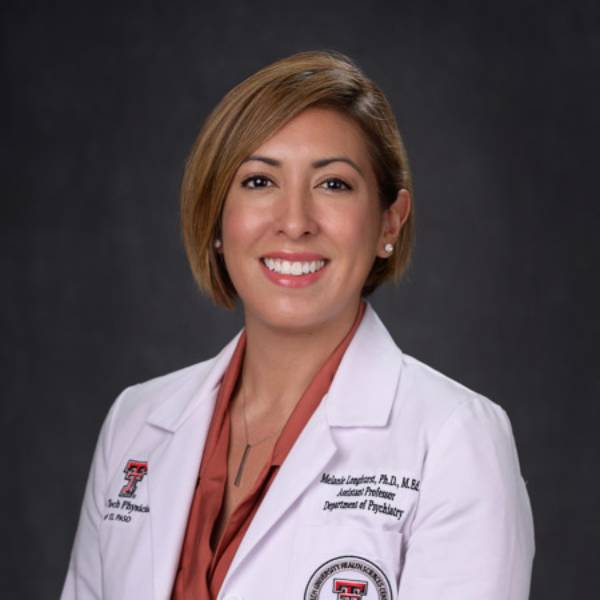Psychology Pre-Doctoral and Post-Doctoral Training

Melanie Olivas Longhurst, Ph.D., M.Ed.
Psychology Training Director
Welcome to the psychology training programs! Texas Tech Health Sciences Center El Paso has opportunities for both predoctoral and post-doctoral psychology training. These programs are designed to prepare psychologists with a solid foundation in general clinical psychology who can provide quality, culturally competent care to diverse populations in public sector medical center or academic settings. Our goal is to train psychologists with a foundation of scientific practice to improve the health and quality of life of the community we serve by providing quality and compassionate care in collaboration with providers from other disciplines. In addition to the provision of direct and indirect clinical care, our trainees will also assist with educating other trainees and colleagues through presentations on mental health topics. The program operates using the scientist practitioner model of training. Trainees are expected to incorporate scientific literature into the context of their clinical practice to include provision of psychotherapy, supervision, teachings, and administrative/research projects. As part of the commitment to multicultural competence, psychology trainees at Texas Tech Health El Paso will be encouraged to participate in TTUHSC EP’s Office of Global Health and Societies Committee seminars and grand rounds, as time permits.
The following include some of the rotations available to psychology trainees:
A multitude of mental health services for children, adolescents, and their families are provided. Trainees will gain experience working with children and their families in different therapeutic modalities including: play therapy, individual and group therapy, dyadic work, parent training, and interdisciplinary clinical consultation.
The Department of Psychiatry provides consultative services at University Medical Center in El Paso, a 270 bed general hospital. Service is throughout the hospital including the emergency room, intensive care units, and wards. Services include diagnosis and treatment of major psychiatric disorders including: depression, bipolar disorder, schizophrenia, PTSD, dementia, delirium, and substance use disorders. In this rotation, the psychology trainees will be exposed to team-based care working along with medical students, residents, nurse practitioners, and attending psychiatrists. By the end of the rotation, the trainees will be able to identify mental illness in a medically ill person, identify psychiatric emergencies, and differentiate between delirium and psychosis, as well as between delirium and dementia.
